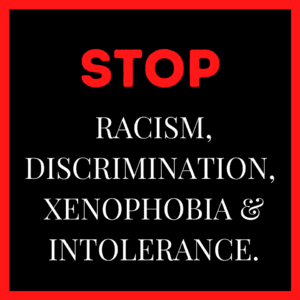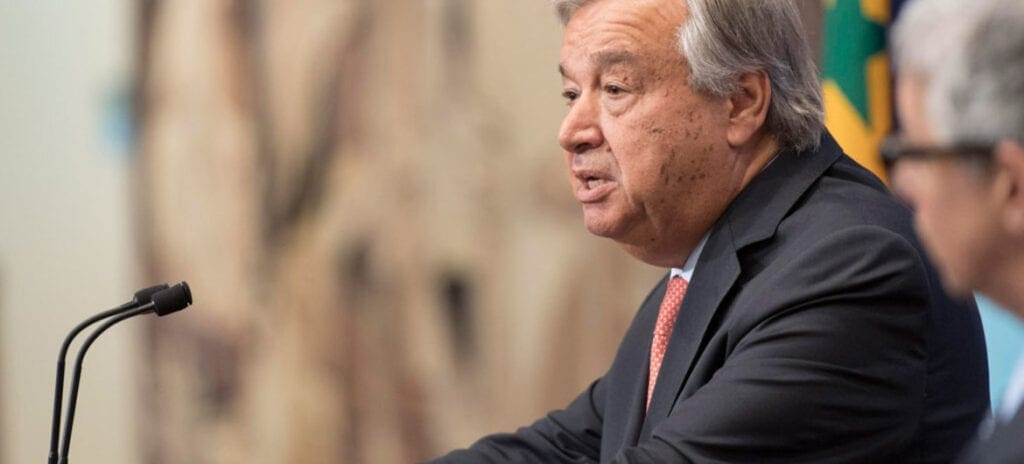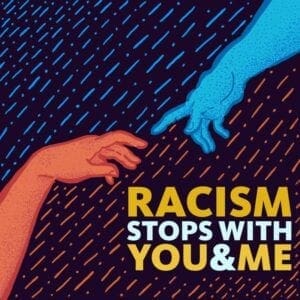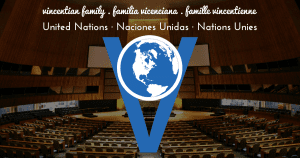Following the recent murder of George Floyd and others in the United States, as well as racism experienced in other parts of the world, you may ask, “What has the UN done to help eradicate racism?” Following are some examples of steps the UN has taken. This list is not exhaustive and we know much more can be done globally. The intent is to provide an idea of what the UN has done thus far.

It issued the Universal Declaration on Human Rights in 1948. Article 1 of the Declaration states that
“All human beings are born free and equal in dignity and rights. They are endowed with reason and conscience and should act towards one another in a spirit of brotherhood.” At Article 2, the Declaration states, “Everyone is entitled to all the rights and freedoms set forth in this Declaration, without distinction of any kind, such as race, colour, sex, language, religion, political or other opinion, national or social origin, property, birth or other status.”
UNESCO, in 1949, initiated a global program to combat racism. It led to the Declaration on Race and Racial Prejudicein 1978. The Declaration called for policies to combat racism and inequalities.

It has issued many calls to end racism. UN Secretary General Antonio Guterres has repeatedly appealed for an end to hate speech, racism, xenophobia, and genocide, as well as conflicts and various forms of violence. On March 25, which was the annual International Day of Remembrance of the Victims of Slavery and the Transatlantic Slave Trade, Mr. Guterres said, “Racism continues to play a strong role in our world. Racism is the reason why outside Africa, people of African descent are often among the last in line for health care, education, justice, and opportunities of all kinds. We need to raise our voices against all expressions of racism and instances of racist behavior. We urgently need to dismantle racist structures and reform racist institutions.
Mr. Guterres reiterated his plea to end racism following Mr. Floyd’s death.
More than 50 year ago, the UN established a Committee on the Elimination of Racial Discrimination. The Committee is an independent body of experts who monitor how member states (countries) implement the UN’s International Convention on the Elimination of all forms of Racial Discrimination, which was adopted in 1965 and entered into force in 1969. An example of a Committee response to racism related to a car attack on peaceful protesters in Charlottesville, Virginia, in August, 2017. The Committee asked for an investigation into the root causes of such actions. It further called upon the US government and political leaders to “unequivocally and unconditionally” reject and condemn racist hate speech and crimes. The link to the Committee’s web site is as follows: https://www.ohchr.org/en/hrbodies/cerd/pages/cerdindex.aspx

It issued the Durban Declaration and Programme of Action on September 22, 2001. This document, which offers a roadmap for action to fight racism, was adopted by consensus at the 2001 UN World Conference against Racism, Racial Discrimination, Xenophobia and Related Intolerance held in Durban, South Africa. To review the declaration, go to this link: https://www.un.org/en/ga/durbanmeeting2011/pdf/DDPA_full_text.pdf
A renewed declaration was adopted in 2011, on the tenth anniversary of the first. It is entitled, “United against racism, racial discrimination, xenophobia and related intolerance.” It can be found at this link: https://undocs.org/en/A/66/L.2
It is currently holding a decade for People of African Descent, from 2015-2024. The following link offers a list of achievements reported by member states, human rights bodies, mechanisms and specialized agencies of the United Nations system, regional organizations, national human rights institutions and non-governmental organizations, to improve the rights of people of African descent.
https://www.un.org/en/observances/decade-people-african-descent/actions-taken
But much more must be done as is evident by the number of people suffering from racism, violence, intolerance, discrimination, and xenophobia globally.
Two years ago, it launched a Plan to Address Hate Speech: In June, 2019, the United Nations launched a plan to identify, prevent, and confront hate speech. At the time, UN Secretary General, Antonio Guterres pointed out growing racism, xenophobia, misogyny, discrimination and violence against various ethnic and religious groups. He further raised awareness of how intolerant and hateful views are unfortunately broadened through social media.
The plan calls for addressing violence, marginalization, discrimination, and poverty, as well as strengthening weak state institutions. The plan can be found at this link:
It adopted the Sustainable Development Goals in 2015. Within Goal 10 (which calls for ending inequalities) is a target which states: “By 2030, empower and promote the social, economic and political inclusion of all, irrespective of age, sex, disability, race, ethnicity, origin, religion or economic or other status.” Target 16B calls for the promotion and enforcement of “nondiscriminatory laws and policies for sustainable development.”
Over the years, the United Nations has issued appeals, declarations, and resolutions; formed committees, developed plans; provided educational material, and more. The UN has offered guidelines. Governments, the private sector, and civil society at all levels must do their part in implementing them if we are to end experience a racism-free world.








Thanks for your passion and the insights you share with us.